1. The Many Loves of Dobie Gillis
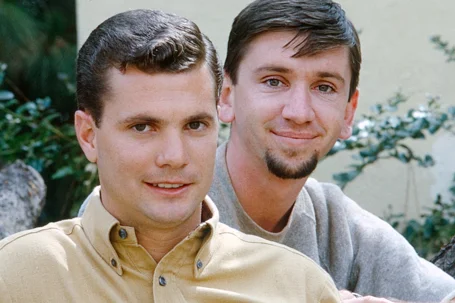
The Many Loves of Dobie Gillis hit the airwaves in 1959 and, despite its early success, was unceremoniously canceled after just four seasons. It was one of the first teen sitcoms to truly tap into the psyche of youth culture, reflecting the complexities of adolescence with humor and heart. The show starred Dwayne Hickman as Dobie, a charming but often clueless teenager, and featured the delightful Wendell Corey as his disillusioned father. With a cast that included the legendary Bob Denver as Dobie’s best friend, Maynard G. Krebs, the series became an instant favorite.
In many ways, Dobie Gillis was a pioneer in portraying the real struggles and joys of growing up. It was bold in addressing issues like the quest for independence, the search for love, and the generation gap. Its cancellation left fans wondering what more the series could have accomplished, especially as it captured the changing cultural landscape of the ’60s. Had it continued, it might have evolved into one of television’s most influential teen dramas.
2. The Smothers Brothers Comedy Hour
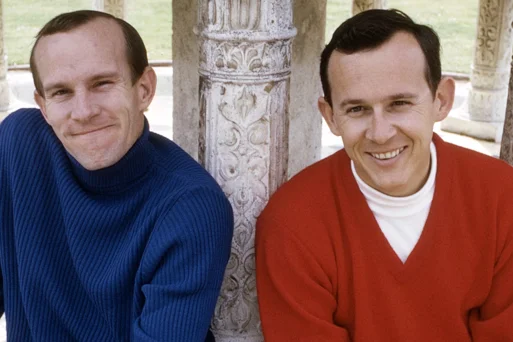
Airing from 1967 to 1969, The Smothers Brothers Comedy Hour was an unexpected hit, known for its groundbreaking blend of satire, political humor, and musical performances. The show, starring the dynamic duo of Tommy and Dick Smothers, took on topics that were rarely touched in mainstream TV at the time, from political corruption to social issues. Despite its growing popularity, it was canceled after three seasons due to clashes with network executives, who were uncomfortable with the show’s increasingly bold and controversial content.
The Smothers Brothers became pioneers of politically charged comedy, challenging norms in ways that were way ahead of their time. Their willingness to tackle hot-button topics and their unapologetic approach to censorship set them apart from other variety shows of the era. Though short-lived, The Smothers Brothers Comedy Hour influenced countless future comedians and TV writers who would follow in their daring footsteps.
3. Honey West
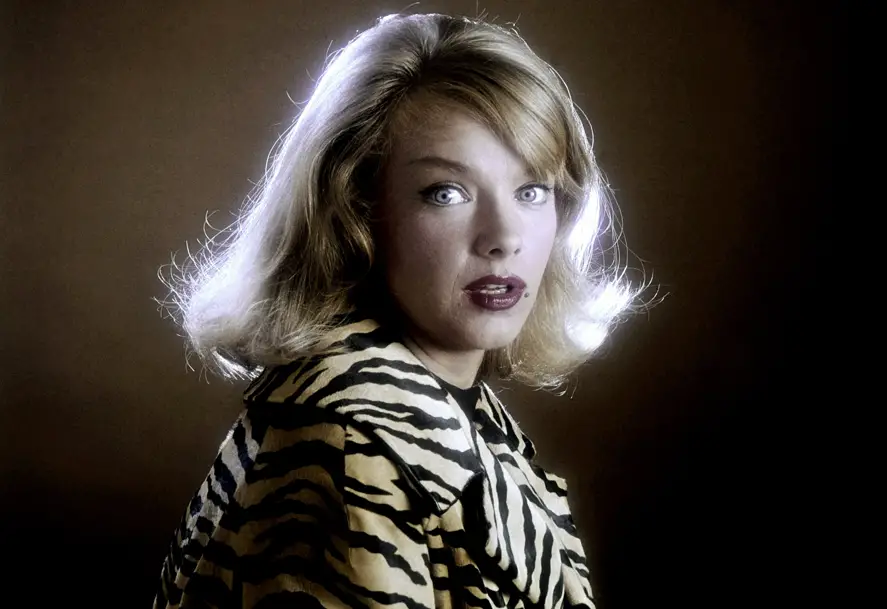
Premiering in 1965, Honey West was a groundbreaking crime drama that introduced the world to one of television’s first female private investigators. The show starred Anne Francis as the titular Honey West, a tough, independent, and highly skilled sleuth who wasn’t afraid to get into a fight or solve a case using her brains. While it was only on the air for a single season, it was considered a pioneering show for its portrayal of women in positions of power, long before shows like Charlie’s Angels hit the scene.
Despite its innovative approach and critical acclaim, Honey West was canceled after just one season, largely due to low ratings. However, its influence can still be seen today in female-led action and detective series. Honey West’s sharp wit and strength paved the way for the strong, empowered female characters that would later dominate the screen. It’s a show that deserved more time to grow and develop its unique formula.
4. The Girl From U.N.C.L.E.
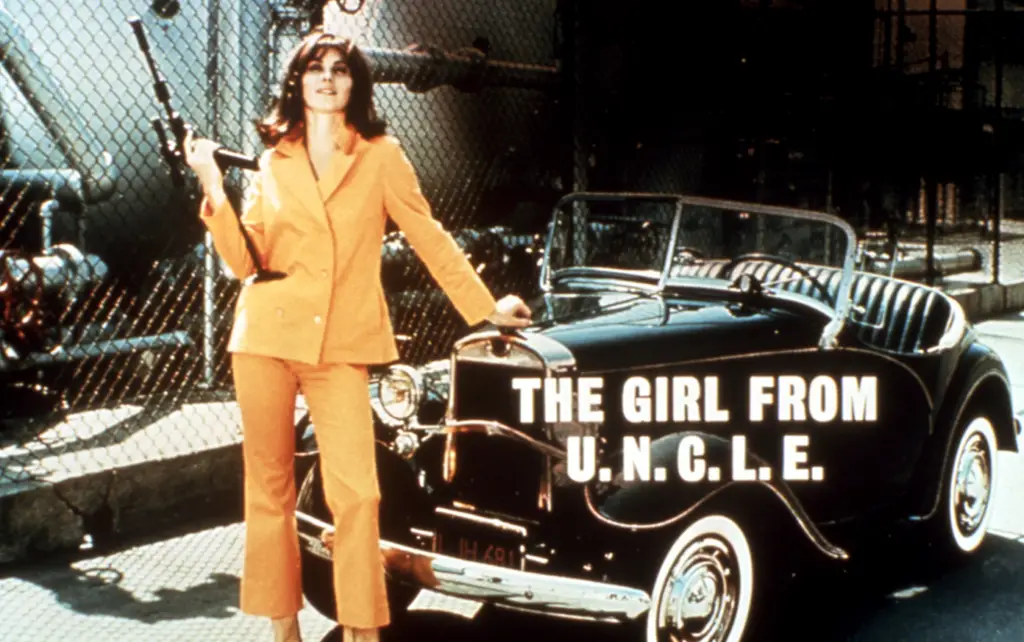
A spinoff of the popular The Man From U.N.C.L.E., The Girl From U.N.C.L.E. aired in 1966 and featured Stefanie Powers as the intrepid agent April Dancer. The series was a stylish, action-packed show that mixed espionage with wit and charm, following Dancer as she worked to thwart the evil plans of a global organization. Though it had all the elements of a hit—action, intrigue, and a strong female lead—The Girl From U.N.C.L.E. only lasted one season before being canceled.
Despite its short run, the show broke ground by putting a female lead front and center in a genre dominated by male protagonists. While its cancellation was disappointing, The Girl From U.N.C.L.E. remains a cult favorite for fans of vintage spy thrillers. It’s a testament to how ahead of its time the show was, offering something new for audiences in the mid-’60s.
5. The Invaders
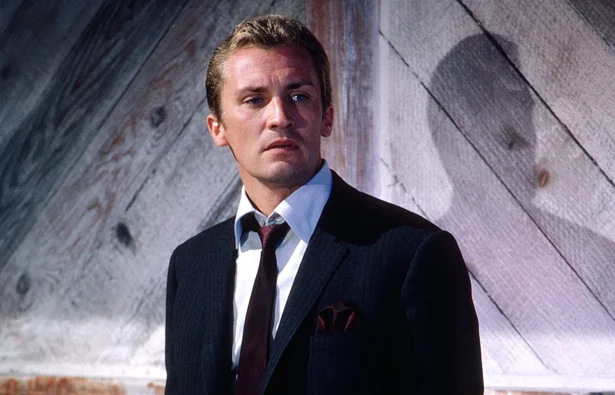
Premiering in 1967, The Invaders was a science fiction series that followed architect David Vincent as he discovered that Earth was being secretly invaded by aliens. This show was known for its intense atmosphere and for delving into themes of paranoia and distrust, reflecting the social climate of the ’60s. Despite its intriguing premise and the popularity of sci-fi shows during that era, The Invaders was canceled after just two seasons.
The show’s exploration of alien conspiracy theories and its chilling depiction of a covert alien takeover seemed way ahead of its time, especially as the Cold War was fueling fears of espionage and invasion. Though short-lived, The Invaders has since garnered a devoted fanbase and influenced other sci-fi works that explored similar themes, such as The X-Files. If it had continued, The Invaders could have helped shape the landscape of sci-fi TV for years to come.
6. Dark Shadows
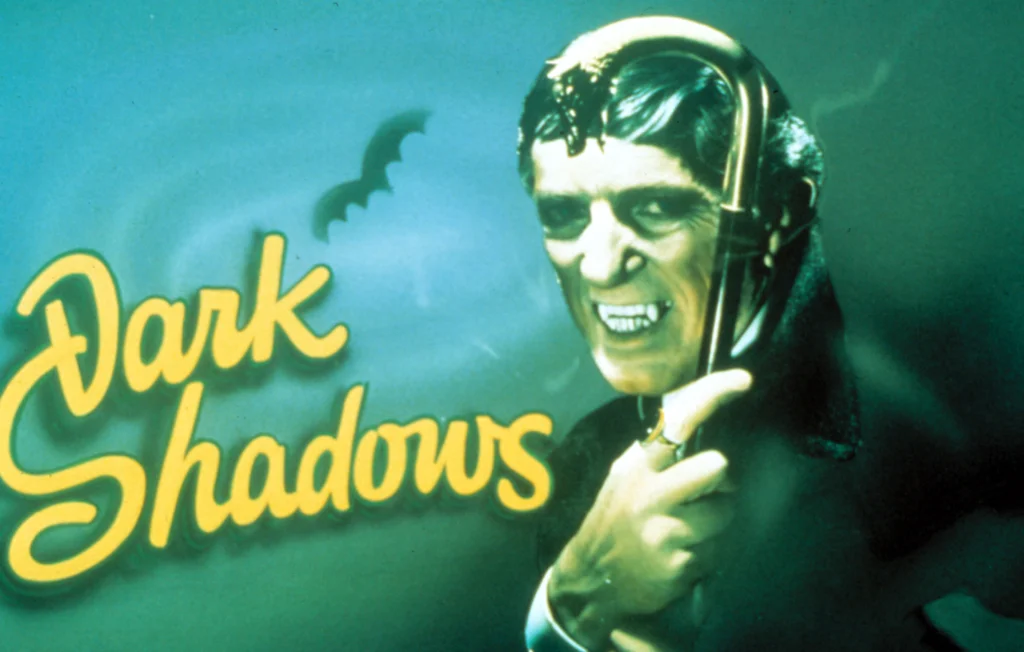
Dark Shadows, which began airing in 1966, was a gothic soap opera about a wealthy family cursed by dark supernatural forces. The show’s most iconic character, Barnabas Collins (played by Jonathan Frid), was a vampire who became an unlikely hero in the show’s strange world of ghosts, witches, and time travel. Though it was initially a daytime soap, its combination of supernatural elements and melodramatic storytelling soon earned it a cult following.
Despite its growing fanbase, Dark Shadows was canceled after only five years in 1971. Its early cancellation was a surprise given its lasting impact, which helped launch a full-length film and a 1990s revival. The show’s ability to weave fantastical elements into everyday drama made it a forerunner of supernatural TV series. Had it been given more time, Dark Shadows could have further explored the fascinating, eerie world it created.
7. That Was the Week That Was
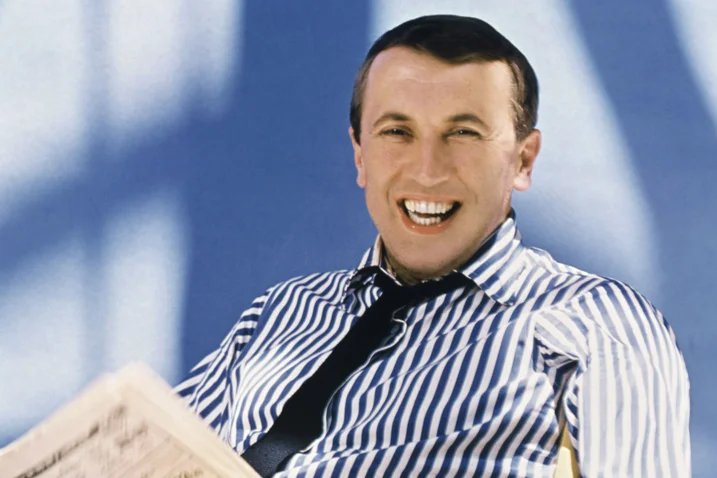
Premiering in 1964, That Was the Week That Was was one of the first TV shows to offer a comedic take on the news, blending satire with current events. Hosted by David Frost, the show used humor and music to comment on the major stories of the week, often pushing the envelope in terms of political and social commentary. The series was groundbreaking in its use of television as a platform for political satire and social critique.
Despite its success and the critical acclaim it received, That Was the Week That Was was canceled after only two seasons. Its cancellation marked the end of an era for the show, but its influence can still be seen today in shows like The Daily Show and Saturday Night Live. It helped lay the groundwork for the political humor that would dominate TV for years to come.
8. The Monkees
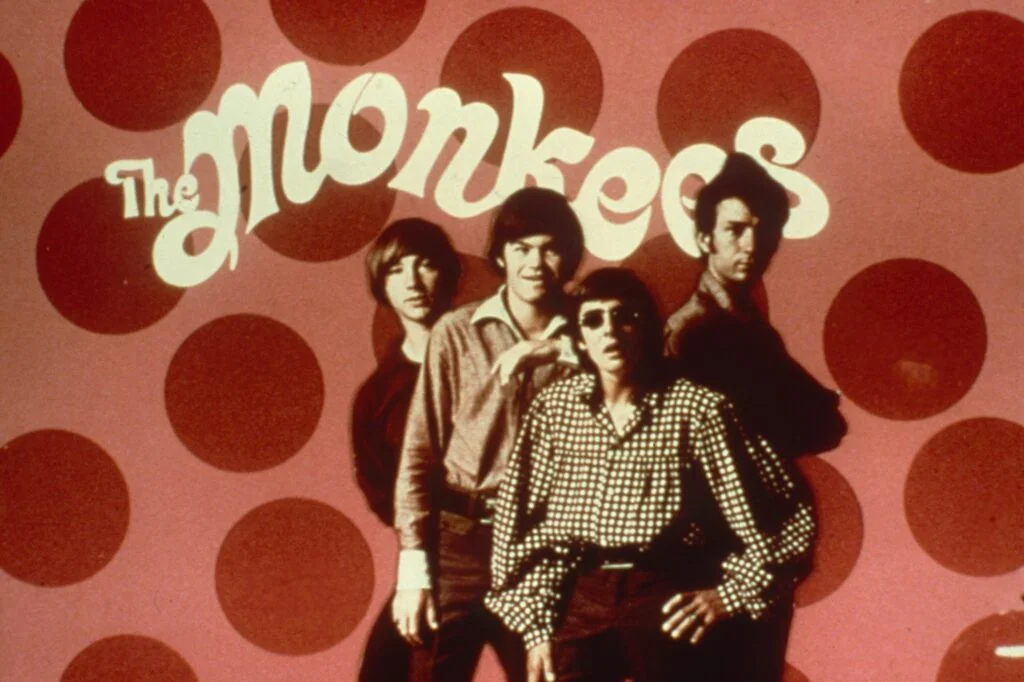
The Monkees was a zany, musical sitcom that premiered in 1966, loosely inspired by the Beatles’ A Hard Day’s Night. The series followed the misadventures of a fictional rock band and showcased the band’s antics, as well as their catchy tunes. Despite being heavily marketed as a “made-for-TV” band, the Monkees ended up becoming real-life pop icons, with hits like “I’m a Believer” and “Last Train to Clarksville.”
The show was canceled after just two seasons, leaving fans wanting more of the Monkees’ infectious charm. Its quick cancellation was surprising given its success and the cultural impact it had. The Monkees was groundbreaking in its mix of music and comedy, influencing later series that would attempt to blend the two genres. Had it been given more time, the show might have expanded its impact on both television and pop music.
9. The Prisoner
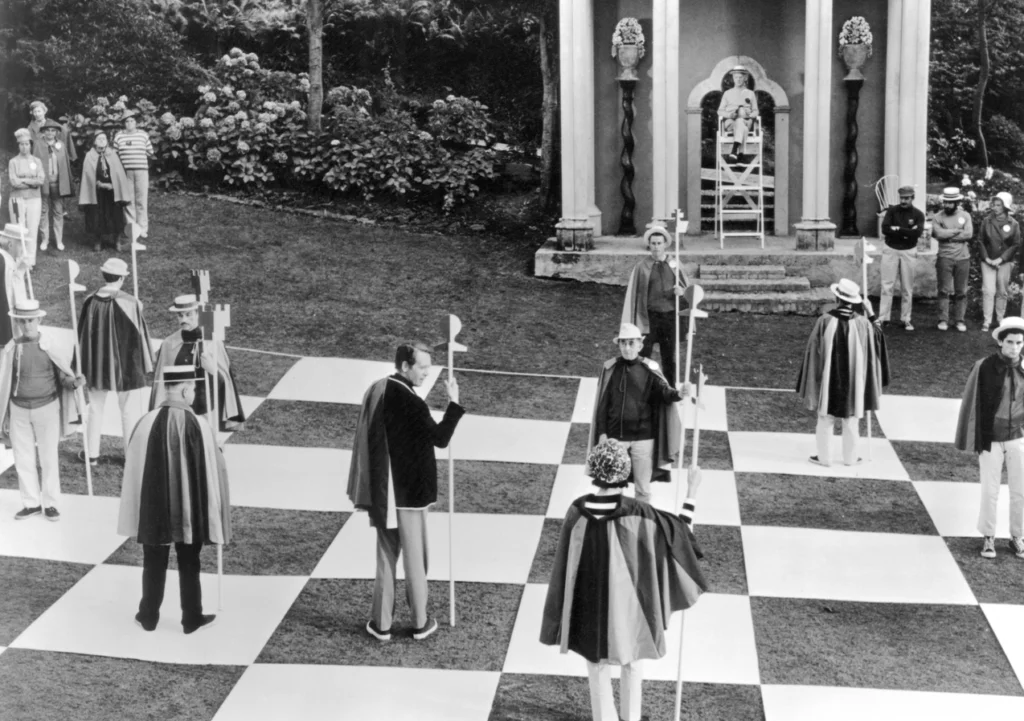
The Prisoner (1967) was an experimental series starring Patrick McGoohan as Number Six, a man who resigns from his job as a secret agent and is subsequently imprisoned in a mysterious village. The show’s blend of spy fiction, surrealism, and philosophical musings made it a cult classic. Its unique approach to storytelling, combined with its cryptic themes about freedom and individuality, was groundbreaking for its time.
Despite its experimental nature, The Prisoner was canceled after just one season, leaving viewers with more questions than answers. Its cancellation didn’t diminish its legacy, however, and The Prisoner has remained a staple of cult television, influencing later works like The X-Files and Lost. The show’s uncompromising vision and thought-provoking content showed what television could achieve when it dared to break away from conventional storytelling.
10. The Wild Wild West
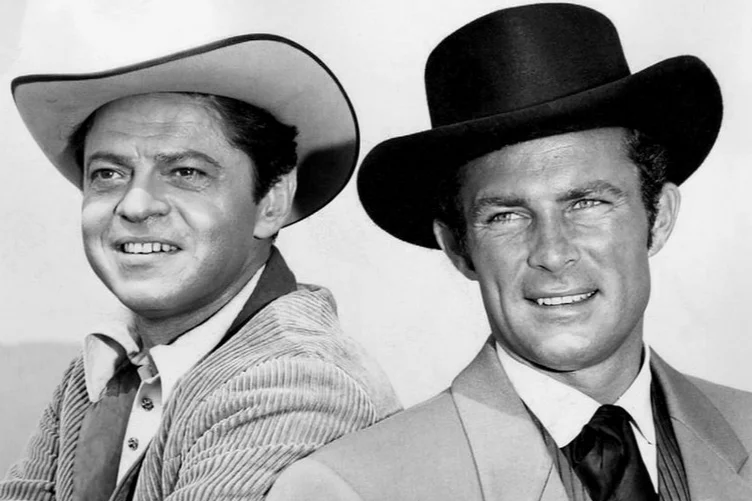
Premiering in 1965, The Wild Wild West was a genre-defying show that blended Westerns with espionage, creating a unique and exciting series. The show followed secret agents James West and Artemus Gordon as they solved complex cases across the American frontier. With its creative use of gadgets, intrigue, and wild action sequences, The Wild Wild West set itself apart from other shows of its time.
Despite its success, the series was canceled in 1969 after just four seasons. While its cancellation was disappointing, the show’s legacy lives on, especially in how it combined genres in ways that had never been done before. It influenced later shows and films, including Wild Wild West (1999), a film adaptation. The show’s mix of Western themes with science fiction elements was revolutionary for its time, and it remains a unique piece of TV history.
11. The Time Tunnel
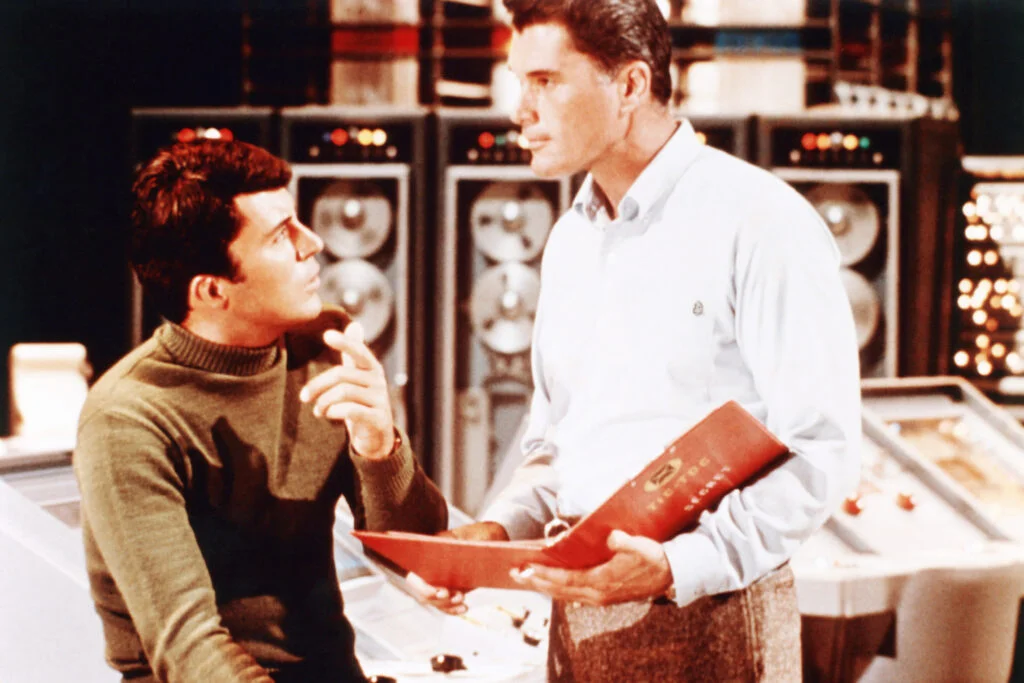
The Time Tunnel was a 1966 science fiction series that followed two scientists who are accidentally sent through time via a top-secret government project. Each week, the show took them to a different historical period, where they encountered famous events and figures. With its imaginative premise and high-tech special effects, The Time Tunnel captivated audiences and became a cult favorite.
Unfortunately, the show was canceled after just one season. Its cancellation was due to its high production costs and the fact that the premise, though inventive, lacked long-term appeal. Had it continued, The Time Tunnel could have further explored the endless possibilities of time travel and its consequences. Its legacy is evident in the way time-travel narratives have become a staple in modern sci-fi TV.
12. It’s About Time
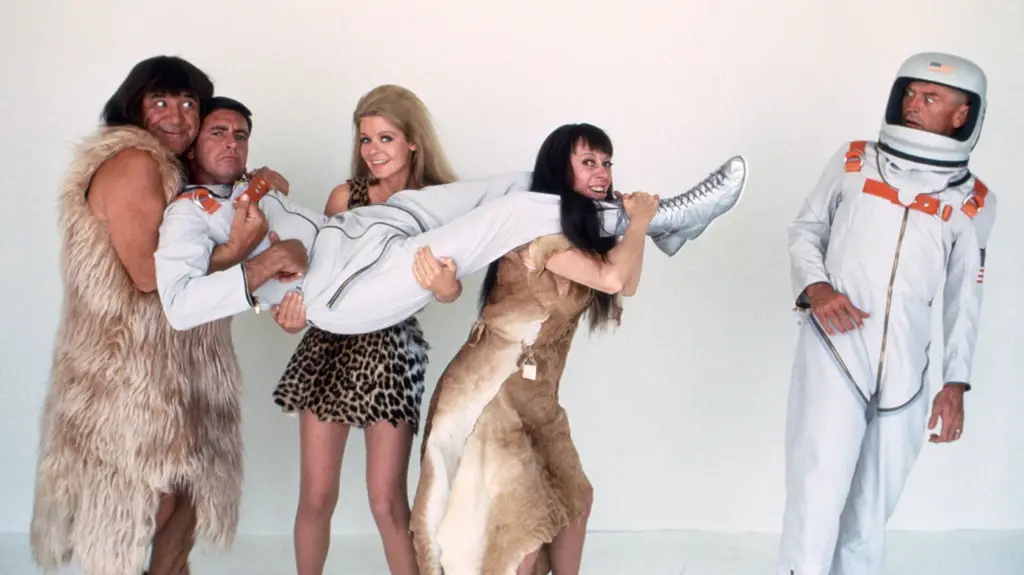
Premiering in 1966, It’s About Time was a unique sitcom that mixed time travel and prehistoric humor. The show followed two astronauts who accidentally land in the prehistoric past, where they encounter cavemen and dinosaurs. Though it only lasted one season, It’s About Time had a quirky charm and a fresh concept, standing out from other sitcoms of the era.
The show’s cancellation left fans disappointed, especially as it offered a completely unique premise that had the potential for more comedic gold. While it may have been a bit outlandish for its time, It’s About Time showed how television was beginning to experiment with new and imaginative genres. Its cancellation was premature, and it remains a curious footnote in the history of ’60s TV.
13. The Flying Nun
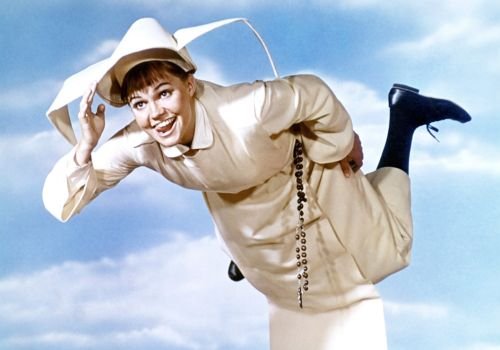
Starring Sally Field, The Flying Nun (1967) followed the adventures of a young nun who gains the ability to fly. It was a lighthearted and whimsical show that combined comedy and heart, appealing to both religious and general audiences. Despite its initial success, The Flying Nun was canceled after three seasons, which surprised many who enjoyed the show’s unique premise.
While the show had its detractors, it broke barriers by presenting a female character who was both a nun and a superhero of sorts. Its quirky concept and lighthearted tone were ahead of its time in terms of blending fantasy with everyday life. Though canceled too soon, The Flying Nun remains a beloved classic with a loyal fan base, proving that sometimes the most unexpected shows have the most enduring appeal.


